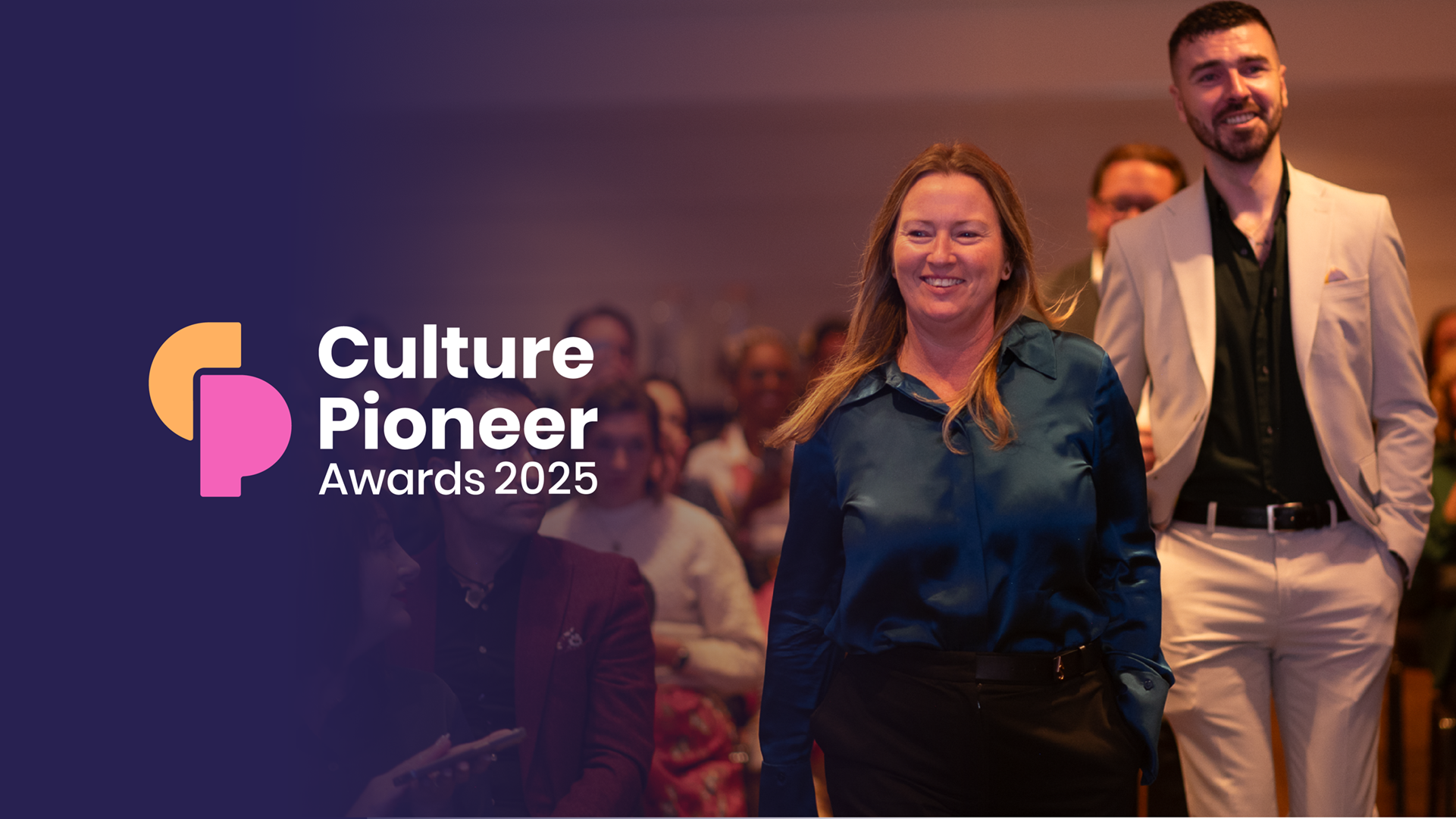Your organisation will be made up of people who have different targets to meet and goals to achieve. You’ll depend on each and every one of them to play their part and make their contribution.
So what happens if those people are struggling to fully make that contribution – not because they aren’t capable of it, or because they’re deliberately withholding effort, but because their beliefs are holding them back and they’re convinced they simply don’t have the ability to do it?
It’s bad enough if just one person feels like that. But how about if this is happening across your whole organisation?
If you have a significant proportion of employees whose beliefs are holding them back, it could be silently paralysing performance and affecting your entire organisation.
If someone is certain they cannot do something, they’ll never give it a try, therefore they will never recognise what they’re truly capable of.
What is a limiting belief?
A limiting belief is a thought, opinion or a state of mind that fixes someone’s focus towards the negative. Essentially it’s something someone believes to be true about themselves, or other people, or the world around them in general – but most of the time people are unaware that they even have them.
Limiting beliefs can have a number of origins but many are created subconsciously based on emotional responses to experiences – and are often formed as a defence mechanism. Those beliefs are labelled and rationalised. Evidence is found to confirm the belief… and they become part of a person’s mindset.
Limiting beliefs are a huge barrier to success
Inevitably limiting beliefs hold people back, almost becoming a kind of self-fulfilling prophecy. If someone is certain they cannot do something, they’ll never give it a try, therefore they will never recognise what they’re truly capable of.
For innovation and creativity, you need people with a growth mindset; people who have the willingness to try and take measured risks, even if things don’t go as hoped. They recognise the value of the learning that comes with it.
Limiting beliefs however go hand in hand with fixed mindsets. They individually hold people back from recognising opportunities and reaching their potential, and as a result collectively affect performance across an organisation.
You can imagine the impact of this type of thinking in your company.
The language of limiting beliefs
You might not realise it but you could already be hearing the language of limiting beliefs throughout your organisation in the meetings you attend, in the conversations you have and even in your own inner voice.
Once you’ve started to tune into it, you’ll become more aware of it. Here is what to watch out for:
- “I must avoid failure at all costs.”
- “I’ll never be able to do something like that.”
- “We’ve always done it that way.”
- “I can’t put myself forward for that job because I haven’t got enough experience / am too old / am too young / could never do it.”
Start listening carefully and you’ll begin to recognise the differences between the pragmatic assessments of what can or can’t be accomplished at a given point in time versus when it is limiting beliefs that are blocking the way.
Through coaching conversations, an individual can start to identify their limiting beliefs.
Moving towards a new mindset
Your leaders and managers have an essential role to play in helping employees address any limiting beliefs they have, while also overcoming any that they might hold about themselves too.
Raise their awareness about the existence of limiting beliefs and the impact they can have, then develop their understanding on how to coach others and use self-coaching to overcome those beliefs and redefine mindsets.
Coaching to reframe limiting beliefs
Overcoming limiting beliefs takes more than a one-size-fits-all quick fix and this is why coaching is so powerful. It facilitates an ongoing process of reflection and enables reframing to take place.
Through coaching conversations, an individual can start to identify their limiting beliefs, firstly acknowledging them and then thinking through how to reframe them by consciously choosing positive beliefs about themselves and others. By bringing these subconscious boundaries into their consciousness, they can question them, reflect on them and then begin the process of rewriting them.
So what kinds of questions could be asked to raise self-awareness and begin to shift those beliefs? Here are a few examples:
What evidence do you have that this belief is true for you?
How does this belief impact on the way you do your work?
What would happen if it turned out that the limiting belief wasn’t true for you?
What could happen if you changed that belief?
Create the language of possibility
Setting out strategies and goals is essential in every organisation. But accomplishing them relies on people who not only have the capabilities to achieve them but who also have enough belief in themselves as well. By using coaching to raise a greater level of awareness of beliefs held, an organisation can build a powerful culture where the emphasis is on having a growth mindset and the language of possibility.
Your organisation will be made up of people who have different targets to meet and goals to achieve. You’ll depend on each and every one of them to play their part and make their contribution.
So what happens if those people are struggling to fully make that contribution – not because they aren’t capable of it, or because they’re deliberately withholding effort, but because their beliefs are holding them back and they’re convinced they simply don’t have the ability to do it?
It’s bad enough if just one person feels like that. But how about if this is happening across your whole organisation?
If you have a significant proportion of employees whose beliefs are holding them back, it could be silently paralysing performance and affecting your entire organisation.
If someone is certain they cannot do something, they’ll never give it a try, therefore they will never recognise what they’re truly capable of.
What is a limiting belief?
A limiting belief is a thought, opinion or a state of mind that fixes someone’s focus towards the negative. Essentially it’s something someone believes to be true about themselves, or other people, or the world around them in general – but most of the time people are unaware that they even have them.
Limiting beliefs can have a number of origins but many are created subconsciously based on emotional responses to experiences – and are often formed as a defence mechanism. Those beliefs are labelled and rationalised. Evidence is found to confirm the belief… and they become part of a person’s mindset.
Limiting beliefs are a huge barrier to success
Inevitably limiting beliefs hold people back, almost becoming a kind of self-fulfilling prophecy. If someone is certain they cannot do something, they’ll never give it a try, therefore they will never recognise what they’re truly capable of.
For innovation and creativity, you need people with a growth mindset; people who have the willingness to try and take measured risks, even if things don’t go as hoped. They recognise the value of the learning that comes with it.
Limiting beliefs however go hand in hand with fixed mindsets. They individually hold people back from recognising opportunities and reaching their potential, and as a result collectively affect performance across an organisation.
You can imagine the impact of this type of thinking in your company.
The language of limiting beliefs
You might not realise it but you could already be hearing the language of limiting beliefs throughout your organisation in the meetings you attend, in the conversations you have and even in your own inner voice.
Once you’ve started to tune into it, you’ll become more aware of it. Here is what to watch out for:
- “I must avoid failure at all costs.”
- “I’ll never be able to do something like that.”
- “We’ve always done it that way.”
- “I can’t put myself forward for that job because I haven’t got enough experience / am too old / am too young / could never do it.”
Start listening carefully and you’ll begin to recognise the differences between the pragmatic assessments of what can or can’t be accomplished at a given point in time versus when it is limiting beliefs that are blocking the way.
Through coaching conversations, an individual can start to identify their limiting beliefs.
Moving towards a new mindset
Your leaders and managers have an essential role to play in helping employees address any limiting beliefs they have, while also overcoming any that they might hold about themselves too.
Raise their awareness about the existence of limiting beliefs and the impact they can have, then develop their understanding on how to coach others and use self-coaching to overcome those beliefs and redefine mindsets.
Coaching to reframe limiting beliefs
Overcoming limiting beliefs takes more than a one-size-fits-all quick fix and this is why coaching is so powerful. It facilitates an ongoing process of reflection and enables reframing to take place.
Through coaching conversations, an individual can start to identify their limiting beliefs, firstly acknowledging them and then thinking through how to reframe them by consciously choosing positive beliefs about themselves and others. By bringing these subconscious boundaries into their consciousness, they can question them, reflect on them and then begin the process of rewriting them.
So what kinds of questions could be asked to raise self-awareness and begin to shift those beliefs? Here are a few examples:
What evidence do you have that this belief is true for you?
How does this belief impact on the way you do your work?
What would happen if it turned out that the limiting belief wasn’t true for you?
What could happen if you changed that belief?
Create the language of possibility
Setting out strategies and goals is essential in every organisation. But accomplishing them relies on people who not only have the capabilities to achieve them but who also have enough belief in themselves as well. By using coaching to raise a greater level of awareness of beliefs held, an organisation can build a powerful culture where the emphasis is on having a growth mindset and the language of possibility.









One Response
I always enjoy reading
I always enjoy reading articles and am familiar with this concept from coaching. I am not quiet sure of the evidence and equally they might not be.